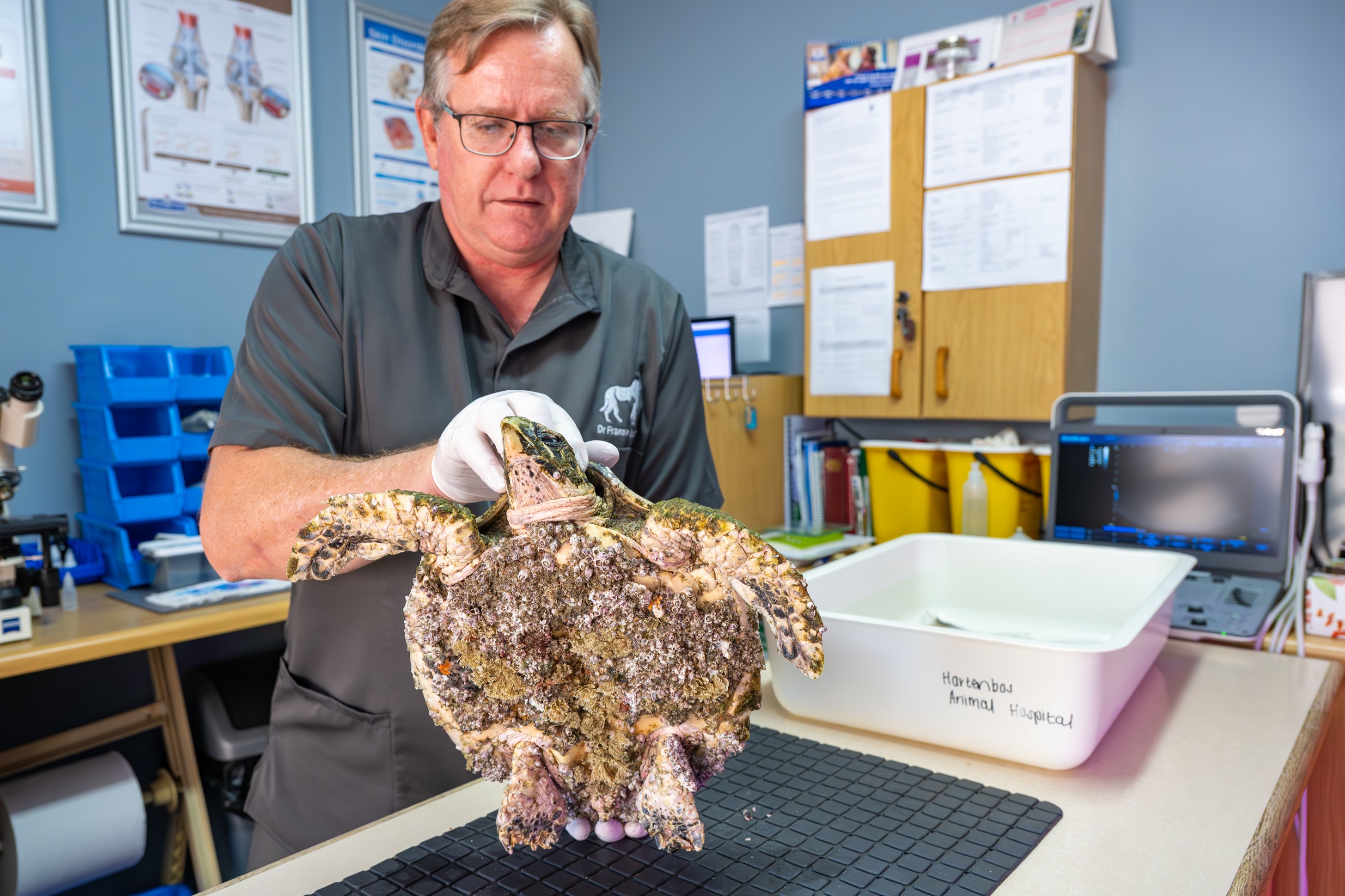MOSSEL BAY NEWS - A hawksbill turtle, covered in barnacles, was rescued from the Hartenbos River Mouth by Stranded Marine Animal Rescue Team (S.M.A.R.T.) volunteer, Michael de Nobrega on Sunday afternoon, 10 November.
Hawksbill turtles are critically endangered.
De Nobrega said he and his two sons were walking along the beach with their dog, when they came across what he first thought was a rock in the water, at the river mouth.
Splashed
"Then some water splashed over it and it moved and I knew immediately what it was," said de Nobrega.
He alerted the rest of the S.M.A.R.T. team members on their WhatsApp group and immediately transported the turtle to the Hartenbos Animal Hospital for veterinarian Dr Frans de Graaff to examine.
Dehydrated, malnourished
De Graaff told Mossel Bay Advertiser the turtle is a sub-adult male and came in "severely dehydrated and malnourished, with wounds on its hind flippers".
"He was covered in barnacles, soft corals and various algae species. We rehydrated him and managed to remove most of the barnacles and organisms on his top carapace (shell)," said De Graaff.
"We gave him various fresh water baths to help with his recovery. He is doing well and is fit to move to the Two Oceans Aquarium this afternoon.
Floating syndrome
"He has severe floating syndrome and he will probably have a long recovery/rehabilitation period at Two Oceans," he said.
Floating syndrome is when there is a build up of gas in the turtle's body, which can occur after it has ingested marine debris.
This can then block the gastrointestinal tract and prevent the turtle's food from being properly digested.
This will then cause the turtle to float, leaving it unable to dive for food.
S.M.A.R.T. spokesperson Val Marsh said De Nobrega happened to be in the right place at the right time.
Bay View Beach
In late September this year, Mossel Bay Advertiser reported on a hawksbill turtle rescued by S.M.A.R.T. from Bay View Beach.
Unfortunately, the turtle did not survive.
The hawksbill turtle is listed as critically endangered on the International Union for Conservation of Nature (IUCN) Red List and can be found in the waters of 108 countries, with nesting occurring in 70 countries.
They do not nest in South Africa but can enter our waters while searching for sub-tropical feeding grounds.
If you spot any stranded marine animals, report them to S.M.A.R.T. (072 227 4715).
 Dr Frans de Graaff examining the turtle.
Dr Frans de Graaff examining the turtle.
‘We bring you the latest Garden Route, Hessequa, Karoo news’















